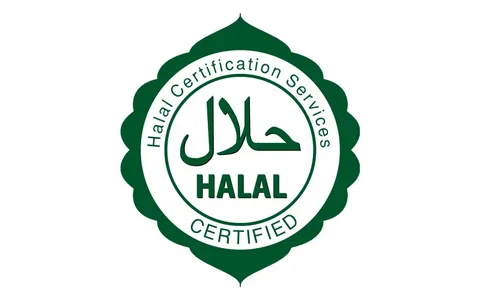
The global halal food market has experienced remarkable growth, reaching over $2.3 trillion and continuing to expand at an impressive rate. For food manufacturers, processors, and retailers looking to tap into this lucrative market, obtaining proper halal certification has become essential. This religious dietary standard affects purchasing decisions for nearly 2 billion Muslims worldwide, making it a critical consideration for businesses seeking international expansion.
What Makes Food Products Halal
Halal, meaning “permissible” in Arabic, encompasses specific dietary laws derived from Islamic teachings. These guidelines govern not only the types of ingredients allowed but also the entire production process, from sourcing to packaging. Products must be free from pork, alcohol, and certain additives while following strict preparation methods that prevent cross-contamination with prohibited substances.
The certification process involves thorough inspection of facilities, ingredient verification, and ongoing monitoring to ensure compliance. Certified facilities must maintain separate production lines or implement rigorous cleaning protocols between halal and non-halal products. This attention to detail builds consumer trust and demonstrates commitment to quality standards that often exceed conventional food safety requirements.
Benefits for American Food Companies
American businesses pursuing halal food certification gain access to both domestic and international markets. The Muslim population in America continues to grow, creating increased demand for certified products in local grocery stores, restaurants, and food service establishments. Major retailers now dedicate entire sections to halal products, recognizing the purchasing power of this consumer segment.
International opportunities prove even more significant, with Muslim-majority countries often requiring certification before allowing food imports. Countries like Malaysia, Indonesia, and the Gulf States maintain strict import regulations that favor certified products. Businesses that invest in proper certification often see substantial returns through expanded distribution channels and premium pricing opportunities.
Choosing the Right Certification Body
Selecting an appropriate certifying organization requires careful consideration of several factors. The body must be recognized by target markets, maintain rigorous standards, and provide ongoing support throughout the certification process. Different countries may recognize different certifying authorities, making it crucial to research specific market requirements before beginning the application process.
Reputable organizations typically offer comprehensive halal certification services that include initial facility audits, ingredient analysis, staff training, and periodic inspections. They should provide clear documentation, maintain transparent fee structures, and offer responsive customer support. The best certifiers also stay current with evolving regulations and industry best practices.
Cost Considerations and Investment Returns
Halal certification fees vary significantly based on company size, product complexity, and chosen certifying body. Initial costs typically include application fees, facility inspections, and documentation preparation. Ongoing expenses cover annual renewals, periodic audits, and potential facility modifications needed for compliance.
While upfront investments may seem substantial, most companies report positive returns within the first year of certification. Increased sales volume, premium pricing opportunities, and access to new markets often offset initial expenditures. Many businesses discover that halal standards improve overall quality control processes, leading to reduced waste and enhanced product consistency.
The Certification Process Explained
The journey toward certification begins with a detailed application that outlines company operations, ingredient sources, and production methods. Certifying bodies review submitted documentation before scheduling on-site inspections. These visits examine facilities, equipment, storage areas, and staff procedures to identify any potential compliance issues.
Following successful inspection, companies receive certification documents that typically remain valid for one year. Maintaining certification requires ongoing compliance monitoring, periodic re-inspections, and prompt reporting of any operational changes. Some certifiers provide digital tracking systems that streamline compliance reporting and renewal processes.
Quality Assurance and Consumer Trust
International halal certification standards have evolved to encompass comprehensive quality management systems. These frameworks address ingredient traceability, supplier verification, staff training, and documentation requirements. Companies often find that meeting these standards elevates their overall quality assurance programs beyond minimum regulatory requirements.
Consumer confidence in certified products remains exceptionally high, with studies showing that Muslim consumers actively seek certification logos when making purchasing decisions. This brand recognition translates into customer loyalty and word-of-mouth marketing that extends beyond religious communities. Many non-Muslim consumers now associate halal certification with higher quality and ethical production practices.
Future Market Opportunities
The halal food industry shows no signs of slowing down, with emerging markets in Asia, Africa, and Europe driving continued expansion. Demographic trends suggest that Muslim populations will continue growing globally, creating sustained demand for certified products. Technology advances in supply chain tracking and digital certification are making compliance easier and more cost-effective for businesses of all sizes.
Companies that establish certification early often gain competitive advantages that become difficult for competitors to overcome. First-mover benefits include stronger relationships with distributors, better shelf placement, and enhanced brand recognition within target communities. The investment in halal certification represents not just compliance with religious requirements but strategic positioning for long-term growth in one of the world’s fastest-expanding food markets.
Smart businesses recognize that halal certification opens doors to opportunities that extend far beyond regulatory compliance, creating pathways to sustainable growth and market leadership.
Read more exciting news on zynexi.com







